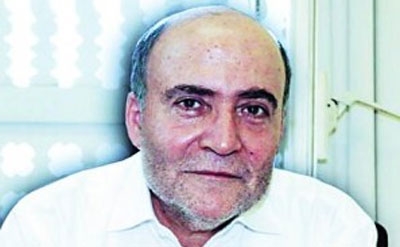
“In view of the scheduled intensified talks” – Article by Toumazos Tsielepis, Member of the Secretariat of the C.C. of AKEL and Head of the Cyprus problem Office of the C.C.
1st November 2015, “Haravgi” newspaper
 The negotiation procedure on the Cyprus problem is at a crossroads. I n a few days intensified talks will begin at the level of leaders, whilst a lot will depend on the election result in Turkey.
The negotiation procedure on the Cyprus problem is at a crossroads. I n a few days intensified talks will begin at the level of leaders, whilst a lot will depend on the election result in Turkey.
The chapter that will dominate the intensive negotiations is the property issue. The chapters on Governance and Power-Sharing, the Economy and the European Union will logically not encounter insurmountable difficulties, providing of course that neither side will deviate from the previous convergences that were agreed. If there similar progress is registered on the property issue, then we enter into what the Turkish side calls the “final stage”: The territorial issue will be discussed, this time with maps and figures, with the chapter on Security and Guarantees to follow.
There are two unresolved key issues in relation to the property issue: First, the Turkish Cypriot side’s public at least persistence on guaranteed majorities of population or properties in each region. The second issue concerns who has the first say on the choice of therapy: the owner, as the Greek Cypriot side correctly insists on or the user, as the Turkish Cypriot side wrongly insists?
As far as guaranteed majorities are concerned, the Turkish Cypriot side always puts forth the argument that these were included in the Ghali Ideas, which were adopted by the United Nations Security Council with Resolution 750. On our part, we always recall that in the final version of the Ghali Set of ideas, which was adopted with resolution 774 of the Security Council, guaranteed majorities were not included.
Eventually a convergence was achieved between Christofias – Talat that there will be no restrictions in the freedom of settlement and property acquisition, but simply a ceiling in the exercise of political rights on a territorial basis. That is to say, if the Greek Cypriots who will choose to live under Turkish Cypriot administration exceed a logical percentage rate to be agreed, those who exceed it will exercise their political rights on a community basis and in this way the Turkish Cypriot political majority will be safeguarded.
There is no doubt that initially a broad population majority of Turkish Cypriots will be formed in their own constituent state. Without substantial territorial adjustments it is impossible to achieve a solution. Therefore, given that the majority of the refugees will return under Greek Cypriot administration, even in the unlikely event of all the rest choosing to return under Turkish Cypriot administration, the Turkish Cypriots will be at least more than double the number in the region under their administration.
Something similar would apply in relation to the Greek Cypriot properties in the Turkish Cypriot constituent state. If the evaluation is true that the overwhelming majority of Turkish Cypriots will opt for an exchange, in the event this was to be done exclusively with Greek Cypriot properties, the Turkish Cypriots would have approximately 60% of the land in the region under their administration. However, the percentage will be less to the extent that the owners would opt for rehabilitation and meet the relevant criteria. In these cases, the users who choose to make an exchange must take an alternative property. However, taking into account that according to public opinion surveys only 20% of Greek Cypriots choose reinstatement, it is clear that the figure of 60% will probably ultimately change by going up.
Given, therefore, that everything suggests that after the completion of the mass movements a broad majority of population and property will be formed, how can this subsequently be reversed with the individual exercise of the right and acquisition of property? But even if it were to be reversed over time, there is the guaranteed political majority.
Concerning the second thorny question, as to who has the first say, it is obvious that each side will insist on its position and the European Court of Human Rights with its infamous Dimopoulos decision unfortunately strengthens the Turkish Cypriot position. Consequently, the focus must be on the reinstatement criteria.
In conclusion, if the talk about guaranteed majorities and priority for the user is abandoned, the property issue can progress. This is when Turkey will be put before its responsibilities with regards the core issues of the territorial issue, Security and Guarantees. If, however, the Turkish Cypriot side deviates and departs from the aforementioned convergence and insists on guaranteed majorities and priority for the user, the danger of the negotiation procedure collapsing will be real.




